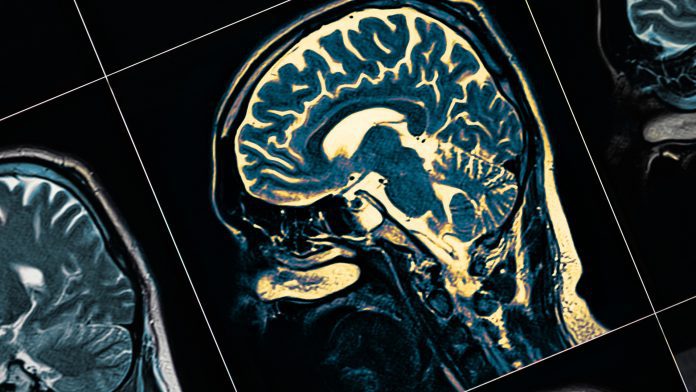
An international study involving University of Liverpool researchers has found a new potential target for Alzheimer’s treatment.
New research shows that medin, a protein, is deposited in the blood vessels of the brains of Alzheimer’s disease patients along with the protein amyloid-β. This could potentially lead to new targets for Alzheimer’s treatment.
Medin is in a group of proteins known as amyloids. Amyloid-β clumps together in the brains of Alzheimer’s patients. These aggregates then deposit both plaques directly in the brain tissue, but also in its blood vessels, which damages the nerve cells and the blood vessels.
The findings are published in Nature.
What is Alzheimer’s disease?
Alzheimer’s disease is the most common cause of dementia in the UK. It causes symptoms such as memory problems, confusion, difficulty planning, speech problems, and hallucinations.
The exact cause of Alzheimer’s is not fully understood, although there are factors that can increase your risk of developing the condition. This includes increasing age, a family history of the condition, untreated depression, and lifestyle factors and conditions associated with cardiovascular disease.
Medin has been underestimated in medical research
In the collaborative study, led by Deutsches Zentrum für Neurodegenerative Erkrankungen (DZNE), researchers showed in Alzheimer’s mouse models that medin accumulates strongly in the brain’s blood vessels if amyloid-β deposits are also present.
These findings were confirmed when brain tissue from organ donors with Alzheimer’s dementia was analysed. However, the mice were genetically modified to prevent medin formation, and significantly fewer amyloid-β deposits developed, resulting in less damage to blood vessels.
“Medin has been known for over 20 years, but its influence on diseases was previously underestimated. We were able to show that pathological changes in the blood vessels of Alzheimer’s patients are significantly enhanced by medin,” said Dr Jonas Neher from DZNE, who led the study.
Providing fresh hope for new Alzheimer’s treatment
These findings could lead to the development of new Alzheimer’s treatment, with the research team noting that medin could be a therapeutic target to prevent vascular damage and cognitive decline resulting from amyloid accumulation in the blood vessels of the brain.
Dr Jill Madine, a lecturer in the University’s Institute of Systems, Molecular and Integrative Biology, said: “We continue to work with Dr Neher and the team at DZNE to further our understanding of Alzheimer’s disease and areas for future therapeutic intervention following this new and exciting finding.”
Currently, there is no cure for Alzheimer’s disease; there are medications available to reduce symptoms but research teams around the world continue to work hard to find new Alzheimer’s treatments.









